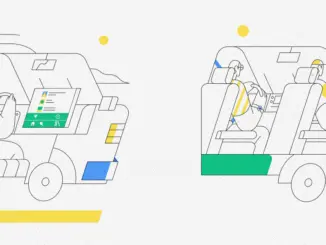
Deezer has announced a new sharing feature: playlists created on Deezer can now be opened on Spotify, Apple Music, YouTube Music, and other services. When you share a playlist, Deezer creates a link that recognises equivalent track versions on other streaming platforms and redirects listeners accordingly. This uses automatic song recognition and matching.
Deezer says playlists are its second most-shared content type (after individual songs). Among users aged 18–34, over 190,000 playlists are shared every week.
The feature builds on Deezer’s earlier ‘Shaker’ tool, which let users remix and personalise playlists collaboratively — now expanding that idea across platforms.
Alexis Czornomaz, VP Product & Product Design at Deezer, said: “With our universal sharing feature for playlists, we’re putting connection back at the heart of music and letting our users share their favourite songs with their friends.”
Why this move matters
- Reduces friction: One of the biggest annoyances in streaming is platform lock‑in. Now you can share your curated list even if your friend uses a different service.
- Discovery boost: Artists gain exposure beyond Deezer’s user base because shared playlists can lead listeners to other catalogues.
- Differentiation: While many platforms emphasise algorithmic recommendations, Deezer positions itself as a bridge and curator, reinforcing that social and editorial layer.
In essence, Deezer’s move positions it as the most open and shareable of the major streaming services.
How Deezer’s feature compares to others
| Service | Playlist Sharing Features | Limitations / Notes |
| Deezer (new) | Universal sharing: link works on Spotify, Apple Music, YouTube Music; auto-matching across catalogues | Matching isn’t perfect — some songs may not exist in the target platform’s catalogue; version differences |
| Spotify | Collaborative playlists: invite others to edit. Share playlists via link or embed. | Sharing to non‑Spotify users is limited; shared playlists often require them to use Spotify to access full functionality |
| Other tools (e.g., TuneMyMusic) | Export or generate shareable public links mapping playlist content across platforms. | Requires third-party services; external dependence. |
Points to watch/potential challenges
- Track and version mismatches: Not every song has an exact equivalent across services, so playback quality or availability may vary.
- Privacy and metadata: Playlist artwork, notes, and order may not transfer perfectly between services.
- Marketing and adoption: For this to succeed, Deezer must raise awareness — many users may not find it automatically.
Deezer Shaker and social discovery
Launched in 2023, Deezer Shaker allowed users to combine their listening preferences with friends to generate hybrid playlists. The new cross-platform sharing builds on that social ethos, extending playlist collaboration beyond the boundaries of a single service. Shaker’s integration with the new sharing system could make it easier to remix, merge, and share playlists globally.

What you can try now
- Share one of your playlists and ask a friend on another platform to open it — check how many tracks match.
- Compare track versions: albums can differ across catalogues — note any changes.
- Combine with collaboration features: use Deezer’s link as a base and refine elsewhere.




